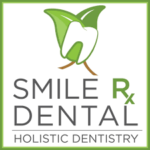
With COVID-19 continuing to spread, it has never been more important for us to have a strong immune system. But, of course, the disruptions and fear stemming from the pandemic have caused stress, impeding our immune system from performing at its best during such a critical time.
Most are familiar with the common manifestations of stress, presenting both as physical and mental in the forms of weight loss or gain, loss of sleep, headaches, body pain and sores, depression and anxiety. But, did you know that stress can impact our oral health too?
Stress can cause the following the oral issues:
Poor Oral Hygiene
Disruptions in your daily routine may have resulted in you skipping a few steps in your oral care. Perhaps you are forgetting to regularly brush your teeth or floss; or maybe you have not been doing these with as much time and care as before. In any case, you want to make sure you consistently implement a regimen that includes brushing your teeth for 2 minutes at least twice a day and flossing at least once a day. We are spending more time than ever washing our hands, might as well show our teeth some care and love too.
Teeth Grinding
Stress and anxiety can trigger some to clench or grind their teeth unconsciously throughout the day, or while sleeping at night. This condition known medically as ‘bruxism’ can result in permanent damage of the teeth and can cause earaches, jaw pain and headaches. Most who suffer from it are not even aware that it is happening. So, if you think or suspect yourself of clenching or grinding your teeth, try to reduce or avoid stress (I know, I know, easier said than done), and consult with your dentist who can prescribe you an appropriate mouth guard to wear.
Jaw Issues
Stress can also trigger temporomandibular joint (TMJ) dysfunction. The TMJ is the joint that attaches the jaw to the skull. Damage or injury to the TMJ, or stress can result in pain surrounding the joint and its muscles. Common signs of TMJ dysfunction include jaw pain, difficulty chewing, and clicking or locking of the jaw. Your dentist can assess any issues with your TMJ and advise you on the best course of action, which may involve medication to manage the pain, a mouth guard or oral splint, physical therapy, surgery or other procedures.
Oral Infections & Sores
Stress can weaken your immune response, which increases your risk of acquiring oral infections and sores. For example, canker sores may present as small bumps with a white or gray base and a red border on the insides of the mouth. When these appear, it is recommended to avoid spicy, hot, and acidic foods. Canker sores should disappear on their own in between 7 to 10 days. However, if you get these often, a dentist can prescribe a steroid ointment for you.
Cold sores, caused by the herpes simplex virus, can also flare up during times of stress. These too should heal in roughly one week, but remember that you can transmit the virus to others when your sores are present. You should consult with your dentist about the best treatment for you.
What You Can Do
Take a few minutes each day to fortify your oral health and immunity. If you have any questions or concerns, chat with your dentist from your living room via a teledentistry appointment. You can book it today (301–249–1571) at Smile Rx Dental in Bowie, MD!

